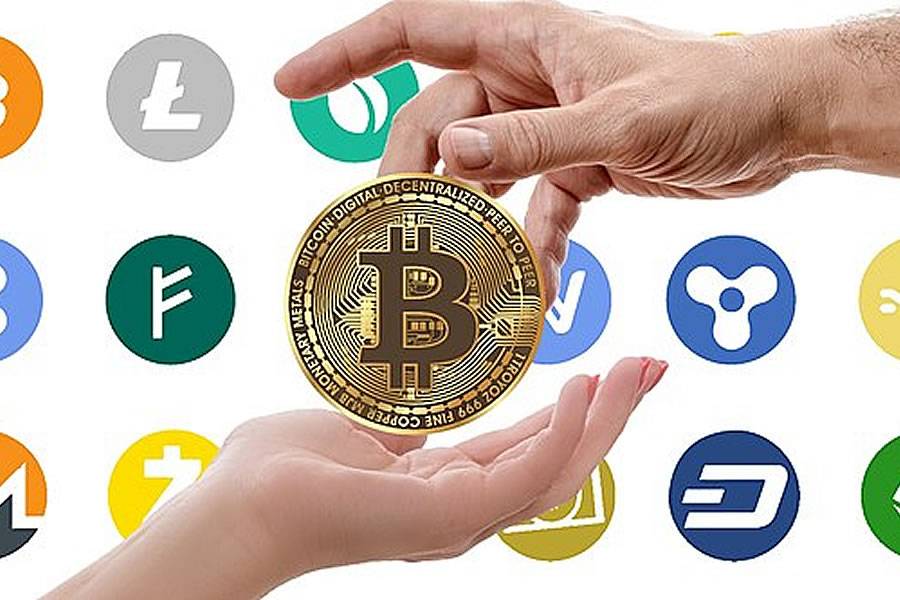The Bitcoin Spectrum: Capturing Altcoin Radiance
- 13-11-2023
- Business
- Canarian Weekly
- Photo Credit: Wikimedia Commons
The world of cryptocurrency has been dominated by Bitcoin since its inception in 2009. It served as the pioneer, the prototype, and the gold standard for all subsequent cryptocurrencies. However, as the cryptocurrency market has evolved, a vast array of alternative cryptocurrencies, commonly known as "altcoins," has emerged.
This article explores the intricate landscape of altcoins, their relationship with Bitcoin, the various types and categories they fall into, their roles, and their significance in the cryptocurrency ecosystem. Visit Immediate Edge Platform to get a smooth and easy trading experience.
UNDERSTANDING ALTCOINS.
Definition and Characteristics:
Altcoins, short for "alternative coins," are all cryptocurrencies other than Bitcoin. They share the fundamental characteristics of cryptocurrencies, including decentralized ledger technology, cryptography, and digital ownership. However, they often aim to provide unique features and solutions beyond what Bitcoin offers. Bitcoin OTC, a platform for trading Bitcoin over-the-counter, is a popular choice among investors seeking privacy and large transaction volumes for their trades.
Historical Evolution:
The concept of altcoins dates back to 2011 when Namecoin was created as an early Bitcoin alternative with a focus on decentralized domain registration. Since then, thousands of altcoins have been launched, each with its vision and purpose.
Role in the Cryptocurrency Ecosystem:
Altcoins play diverse roles within the cryptocurrency ecosystem. While some serve as a medium of exchange, others facilitate smart contracts, decentralized finance (DeFi), or non-fungible tokens (NFTs). These various roles complement and expand upon the capabilities of Bitcoin.
THE BITCOIN-ALTCOIN RELATIONSHIP.
Complementary or Competitive?
Initially perceived as competitors to Bitcoin, altcoins have evolved to complement the pioneer cryptocurrency. Bitcoin's primary focus is digital gold and a store of value, while altcoins explore other use cases, from smart contracts to tokenized assets.
Market Dynamics:
Bitcoin's dominance, often measured by its market capitalization as a percentage of the entire cryptocurrency market has fluctuated over time. Altcoins have contributed to shifts in this dominance, with periods where Bitcoin takes a backseat to the altcoin rally.
Impact on Bitcoin's Price:
The performance of altcoins can have a notable impact on Bitcoin's price. During bull markets, increased interest and investment in altcoins can drive more attention to the cryptocurrency market as a whole, benefiting Bitcoin.
Altcoins: Types and Categories.
Utility Tokens:
Utility tokens are among the most common types of altcoins. They provide access to a specific product or service within a blockchain-based ecosystem. For example, Ethereum's Ether (ETH) serves as a utility token to pay for transaction fees and computational services on the Ethereum network.
Security Tokens:
Security tokens represent ownership of real-world assets, such as equity or debt. They operate within the regulatory framework of securities laws, making them a bridge between traditional finance and the crypto world.
Stablecoins:
Stablecoins are designed to maintain a stable value, often pegged to a reserve asset like the US dollar. They offer a reliable medium of exchange and a haven from the volatility of other cryptocurrencies.
Privacy Coins:
Privacy coins, like Monero (XMR) and Zcash (ZEC), prioritize user privacy by concealing transaction details. While these coins provide anonymity, they also raise concerns about their use in illicit activities.
ALTCOIN PROJECTS AND INNOVATIONS.
DeFi (Decentralized Finance) Tokens:
DeFi tokens enable decentralized financial services like lending, borrowing, and yield farming. They operate on blockchain platforms like Ethereum and have gained significant attention for their potential to disrupt traditional finance.
NFTs (Non-Fungible Tokens):
NFTs represent unique digital assets, such as art, collectables, and virtual real estate. They have opened up new avenues for creators to monetize their digital content.
Layer 2 Solutions:
Layer 2 solutions like the Lightning Network and Optimistic Rollups aim to improve blockchain scalability and reduce transaction fees. They work alongside the main blockchain, providing faster and more cost-effective transactions.
RISKS AND CHALLENGES OF ALTCOIN INVESTMENT.
Volatility:
Altcoins are known for their extreme price volatility. While this volatility can lead to substantial gains, it also poses a high level of risk for investors.
Regulatory Uncertainty:
The regulatory environment for altcoins varies from country to country. Some governments have embraced them, while others have imposed strict regulations or bans.
Security Concerns:
Altcoins are susceptible to security breaches, including hacks of exchanges and wallets. Investors must take precautions to protect their holdings.
Pump and Dump Schemes:
Altcoins are sometimes manipulated by fraudulent actors who artificially inflate their prices before selling off their holdings. Investors should exercise caution and conduct thorough research.
ALTCOINS IN THE FUTURE.
Trends and Predictions:
The cryptocurrency market continues to evolve, with new trends emerging regularly. Potential future developments include greater adoption of blockchain technology, increased institutional investment, and the integration of cryptocurrencies into everyday life.
Integration with Traditional Finance:
As cryptocurrencies gain legitimacy, they are increasingly integrated into traditional financial systems. This includes the acceptance of cryptocurrency payments by major companies and the launch of cryptocurrency-based financial products.
Potential Impact on the Global Economy:
Cryptocurrencies, including altcoins, have the potential to disrupt traditional financial systems and change the way we think about money. Their impact on the global economy remains a topic of debate and speculation.
Conclusion:
Altcoins have significantly diversified the cryptocurrency ecosystem, presenting investors with a wide array of potential use cases and investment avenues. While Bitcoin maintains its position as the pioneer cryptocurrency, altcoins play pivotal roles in pushing the boundaries of blockchain technology. In this dynamic landscape, where staying well-informed is paramount, individuals may explore options that can provide valuable insights and opportunities in the world of cryptocurrencies.
Other articles that may interest you...
Trending
Most Read Articles
Featured Videos
TributoFest: Michael Buble promo 14.02.2026
- 30-01-2026
TEAs 2025 Highlights
- 17-11-2025































































